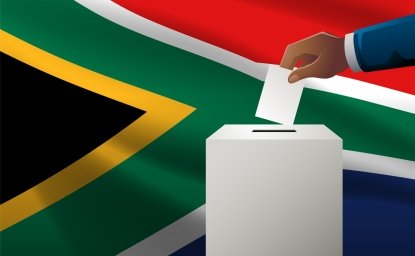Environment and Security in the Great Lakes Region
Wilson Center Africa Policy Scholar Patricia Kameri-Mbote discusses environmental and security hazards in Africa's Great Lakes region and opportunities for environmental peacemaking.
Wilson Center Africa Policy Scholar Patricia Kameri-Mbote discusses environmental and security hazards in Africa's Great Lakes region and opportunities for environmental peacemaking.
Sub-Saharan Africa experiences a wide range of inter- and intra-state conflicts and the Great Lakes Region accounts for a substantial number of them. As conflicts abound, the discernible trend is a decline and deterioration of environmental resources, which, in turn, has made the people in the region increasingly vulnerable to environmental hazards. The situation is exacerbated by the high rate of population growth, inequity, and poor governance.
Development in the region has suffered greatly. As Professor Wangari Maathai, the 2004 Nobel Peace Laureate stated: "There can be no peace without equitable development, and there can no development without sustainable management of the environment in a democratic and peaceful space." (UNEP, 2005).
One common feature that fuels conflicts in the region is the high level of structural violence in all of the countries. Moreover, ethnic divisions create a ripe context for conflict in many of the countries, as does the inability of governments to manage their multi-ethnic societies. Meanwhile, conflict has weakened state polities, diminishing their ability to guarantee security of life and property to its citizenry.
The economies of these nations and the people's livelihoods largely depend upon environmental resources. Therefore, it is generally accepted that sustainable management of the region's environmental resources will result in development. The link between sustainable management of environmental resources and peace in the region has, however, not been explored and articulated. The region could learn a great deal from work on environmental peacemaking from other parts of the world. There are key ecosystems in the Great Lakes region, such as transboundary rivers and forests, that can be used as entry points to get countries in the region to cooperate toward building a lasting peace.
My study will look at ecosystems in the region that can serve as entry points for peace building. It will look mainly at forest and wildlife resources, which, for the most part, have been managed by the state with local people feeling excluded. The move toward decentralized management of environmental resources presents, in my view, an excellent point of intervention for peace building. By getting local communities to participate in the management of resources and providing the context for cooperation between diverse communities on the ground, governments in the region will pave the way for dealing with structural violence and ethnic tensions that exist at the local levels.

The Africa Program works to address the most critical issues facing Africa and US-Africa relations, build mutually beneficial US-Africa relations, and enhance knowledge and understanding about Africa in the United States. The Program achieves its mission through in-depth research and analyses, public discussion, working groups, and briefings that bring together policymakers, practitioners, and subject matter experts to analyze and offer practical options for tackling key challenges in Africa and in US-Africa relations. Read more


The Environmental Change and Security Program (ECSP) explores the connections between environmental change, health, and population dynamics and their links to conflict, human insecurity, and foreign policy. Read more



